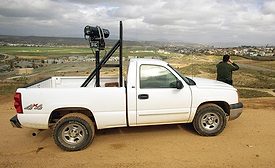Construction, Real Estate, Property Management
Resilient Surveillance in Rugged Environments
When it comes to using video in rugged terrain and remote locations, enterprise security professionals face a range of challenges.
March 20, 2020
Sign-up to receive top management & result-driven techniques in the industry.
Join over 20,000+ industry leaders who receive our premium content.
SIGN UP TODAY!Copyright ©2024. All Rights Reserved BNP Media.
Design, CMS, Hosting & Web Development :: ePublishing











